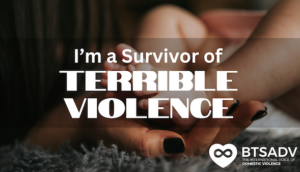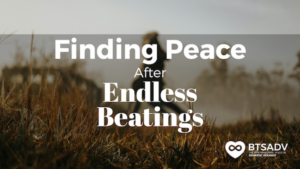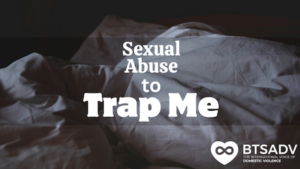Awareness
March is National Disabilities Month; we are coming up on National Autism Awareness Month in April; and last month marked the celebration for National Asperger’s Day. While Asperger’s is no longer diagnosed regularly, and in some circles, it is viewed as a derogatory term, it essentially refers to someone who is high-functioning on the Autism spectrum. As is the case with any marginalized group, people who are on the Autism spectrum have a different set of concerns when it comes to issues of domestic violence and abuse.
This is a cause that is especially close to my heart, because I am not only a survivor of abuse; but I am one of the rare people who was diagnosed as being on the spectrum, as an adult. Had I been diagnosed as a child; I would have been given the label “Asperger’s.” It was that high-functioning status, combined with the limited understanding of Autism at the time, that led to me going undiagnosed for decades.
One of the biggest problems with having something like Autism go undiagnosed, is that it often meant I got misdiagnosed when I would have issues with mental health. Learning about the spectrum lifted a giant weight off of my shoulders. The more-and-more I looked into different symptoms and mannerisms of this new label I was trying to understand, the more I felt like things started to make sense. Even without decades of coping skills, there are often revelations that allow me to conceptualize past situations and current emotions.
Just the sheer knowledge that my brain works differently has allowed me to handle certain situations in a more productive way than I would have before my diagnoses. Like anything, it is not perfect. There are no easy answers when it comes to mental health, but understanding the questions through the proper lens helps. By trying to raise awareness of the Autism spectrum, especially how it relates to abuse, I am hoping to help others avoid the decades of confusion I experienced when trying to come to terms with the abuse I suffered.
Difficult Concepts
Last month, I wrote a blog on teen dating violence. One of the most important ways to reduce teen dating violence is to teach children about concepts of consent and boundaries at a young age. These are difficult concepts for even adults to understand, so the goal is to steadily teach children about them. Hopefully, by the time they are dating, these concepts are second-nature to them. “Second-nature” is the key term here, however, because it is not an intellectual understanding, but an instinctive one.
Social interactions that seem mundane to neurotypical people can be complicated to people on the spectrum. Explaining these nuances to someone with Autism can be increasingly difficult. To an abuser, this is an ideal situation for manipulation. Neurodivergent children and adults, even those who are high-functioning, often have a hard time articulating a lack of consent. Many people on the spectrum also are extremely eager to please others.
Difficulties in Reporting
All of the difficulties neurodivergent individuals have in expressing themselves in normal circumstances can be exasperated when trying to report abuse. According to the Autism Society, people with Autism have a tendency to answer with “Yes” and “No” responses, which can make testimonials about abuse hard to procure. They may, “have a decreased cognitive ability when experiencing
heightened anxiety or frustration.”
Those who are on the spectrum have even been known to not recognize police or emergency medical personnel by uniforms, badges, or vehicles. Over-stimulation of sensory inputs can also prove to be a challenge. Obviously, reporting abuse to the authorities can come with sirens, rapid questions, medical examinations, and other intimidating and stimulating forces. This is one of many reasons that law enforcement needs more training on how do deal with neurodivergent individuals. Any time it is difficult for a group of people to report abuse, the more vulnerable they are to being repeatedly victimized.
Some simple ways to make things more accommodating for Autistic people exist. Shortening interviews can help keep from over-stimulating. Even preparing individuals to answer questions can be an incredibly helpful took in making them feel comfortable. These aren’t accommodations the police make with a lot of victims, but getting the best and most accurate statement should be the most important thing. Still, it is not limited to legal avenues. Therapists, school administrators, and coaches need to be made aware of the different ways neurodivergent children may try to relay a traumatic event. For adults, the same can be said for human resources departments, and medical professionals.
The Numbers
A study conducted by Jonathan A. Weiss and Michelle A. Fardella from the Department of Psychology at York University in Toronto, Ontario looked into who tends to be victims and who tends to be perpetrators in abuse situations involving people with Autism. This study also tried to compare the rates of abuse for those with ASC (the way they refer to people with autism spectrum conditions). The full review of the study can be found below, but there are some key numbers to discuss.
Children with ADC reported incidents of property crime almost seven times more than neurotypical peers. They were more that seven times more likely to be sexually-assaulted and 3.7 times more likely to receive bullying from peers. That bullying number does not appear to be an anomaly or an exaggeration. The survey separated “bullying” from “teasing,” and that is where the situation gets even worse. Children with ASC reported 27 times more incidents of teasing. That is a staggering statistic. While teasing and even bullying don’t always equal victimization of physical or sexual abuse, it can create the atmosphere where an Autistic child would be eager to fit in with the crowd. A group of people who already have a difficult time reading social queues have to contend with these awful jokes and disturbing mockery.
When it comes to adults, it is no surprised that the study found those with ASC were victims of rape and sexual assault at much higher rates that neurotypical peers. Even when talking about teasing, Autistic adults reported almost three times more teasing from other adults than their counterparts. Adults can be quick to cast off teasing and bullying from children as something they will grow out of with maturity, but that just isn’t always the case. We must all work to provide more accommodating spaces for the neurodiverse in our communities.
My Personal Experience
My life has gotten so much better since my diagnosis. It has opened my eyes to a lot of the reasons things were harder for me as a child. I experienced some pretty intense bullying from teachers when I was in school. Looking back on it, I am now aware that those teachers just were ill-prepared to deal with neurodiversity. It makes sense why I would take standardized tests, and score at genius levels, but I always struggled to maintain the 75% average to remain eligible to play basketball.
It also explains why I had such a hard time with the abuse I received and witnessed. I don’t read social queues like other people. Imagine if you just learned a foreign language. When you hear a native-speaker talking, you have to really pay attention to make out these new sounds, accents, and patterns. You may miss words on occasion, but you can piece together themes by context. You may even be able to communicate with your new friend. Now, imagine that an angry man comes up to you, and is speaking that same language. He is screaming at you, and is obviously impatient. You are trying to pick up on this language that is still very difficult to parse. The man is frantic, and doesn’t give you time to put together context. You can’t even plan your replies. Before you know it, the entire interaction has passed, and you are flustered. You have no idea why that just happened to you.
I am in no way speaking for everyone with ASC, but that is how it was for me. Social queues were a foreign language that I was forced to study, because I was not born with the innate ability to read them. Teasing and bullying, mostly by adults, made me constantly worried about whether I was being accepted or over-staying my welcome. When you complicate this with abuse, it can make the entire situation even harder. Nuance can be hard to pick up in conversation, so the person who is frustrated with you being slow in line at the grocery store looks very similar to your father berating you for making an insignificant oversight. When you combine the fact that I was getting mixed messages while trying to learn these things with the fact that I went undiagnosed, it was a disaster. Nobody was even aware that it was an issue.
Learning
This blog contains even more references than most of my posts. In my personal opinion, the impact Autism has on someone’s chances of being abused is an area that is under-studied in both the Autism and abuse communities. There are some really solid and detailed articles and studies that I am including.
While trying to help survivors, and those actively in abusive situations, we must not exclude marginalized communities. At Break the Silence Against Domestic Violence we highlight how these issues contain nuances for People of Color, members of the LGBTQ+ community, members of minority religions, and those with physical, mental, and neurological issues. We must take the time to find out how abuse presents itself to these communities, as well, if we are truly going to make progress towards irradicating domestic violence.
Sources used in this blog can be found at the following links:
https://www.cdc.gov/violenceprevention/pdf/ipv-technicalpackages.pdf
https://www.frontiersin.org/articles/10.3389/fpsyt.2018.00203/full









